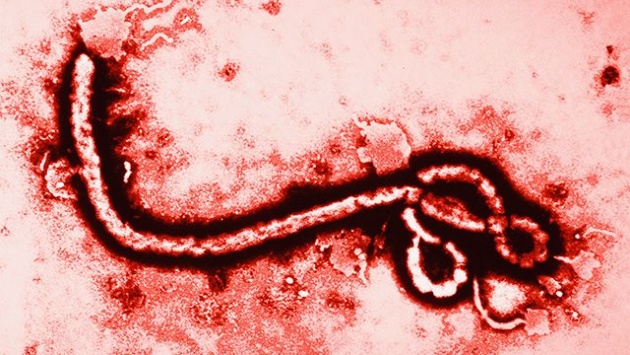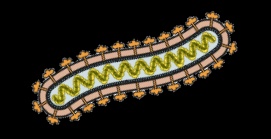
The thousands of survivors of the Ebolavirus outbreak in western Africa – more than at any other time – are fortunate to have survived the disease. However, their health problems are not behind them. A new study shows that the survivors of Ebolavirus have long-term sequelae more than 2 years after infection.
Acute infections caused by viruses such as Ebolavirus are characterized by rapid production of infectious virus particles, followed by resolution and elimination of infection by the host. However, chronic symptoms may persist for a long time after the infection is cleared. There have been long-term health consequences identified in survivors of previous Ebolavirus outbreaks. These include joint and muscle pain, vision and hearing loss, abdominal pain, bleeding, malaise, and psychological problems. Some patients were unable to perform their previous jobs for up to one year.
The long term health consequences of infection was studied in detail for the 2007 outbreak of Bundibugyo ebolavirus in Uganda. Survivors (49) were contacted 29 months after the outbreak and provided information about health status and their ability to function, and blood samples were obtained for further study. Controls for the study were seronegative contacts.
The results show that survivors of Bundibugyo ebolavirus infection are at significantly greater risk than controls for long term health problems. These include ocular problems (pain, blurred vision), loss of hearing, sleep difficulty, and joint pain. Other issues are abdominal and back pain, fatigue, impotence, severe headaches, memory problems and confusion. No differences in results of blood analyses were observed between the two groups. This study only included adults; children who have recovered should also be examined as their health care needs may be different.
These results confirm that there are long-term sequelae of Ebolavirus infection. The basis for the complications is not known, but is likely a consequence of tissue damage due to viral replication and the immune response. Whether or not virus was present in the patients was not determined. However it is known that Ebolavirus can persist in the testicles and eye long after it is absent from serum.

Other serious viral infections are also accompanied by long term health effects. For example, 29% of Lassa virus survivors have hearing loss, while joint pain persists for 3-5 years in about 10% of those infected with chikungunya virus.
Ebolavirus is a highly lethal virus, and those who survive infection are fortunate. Despite recovering, their health problems are not over. The size of the recent outbreak provided impetus for clinical trials of vaccines and antivirals; now research is needed to determine how to best care for the many survivors.
Update: The NIH has announced a study in Liberia to examine the long-term consequences of Ebolavirus infection.



